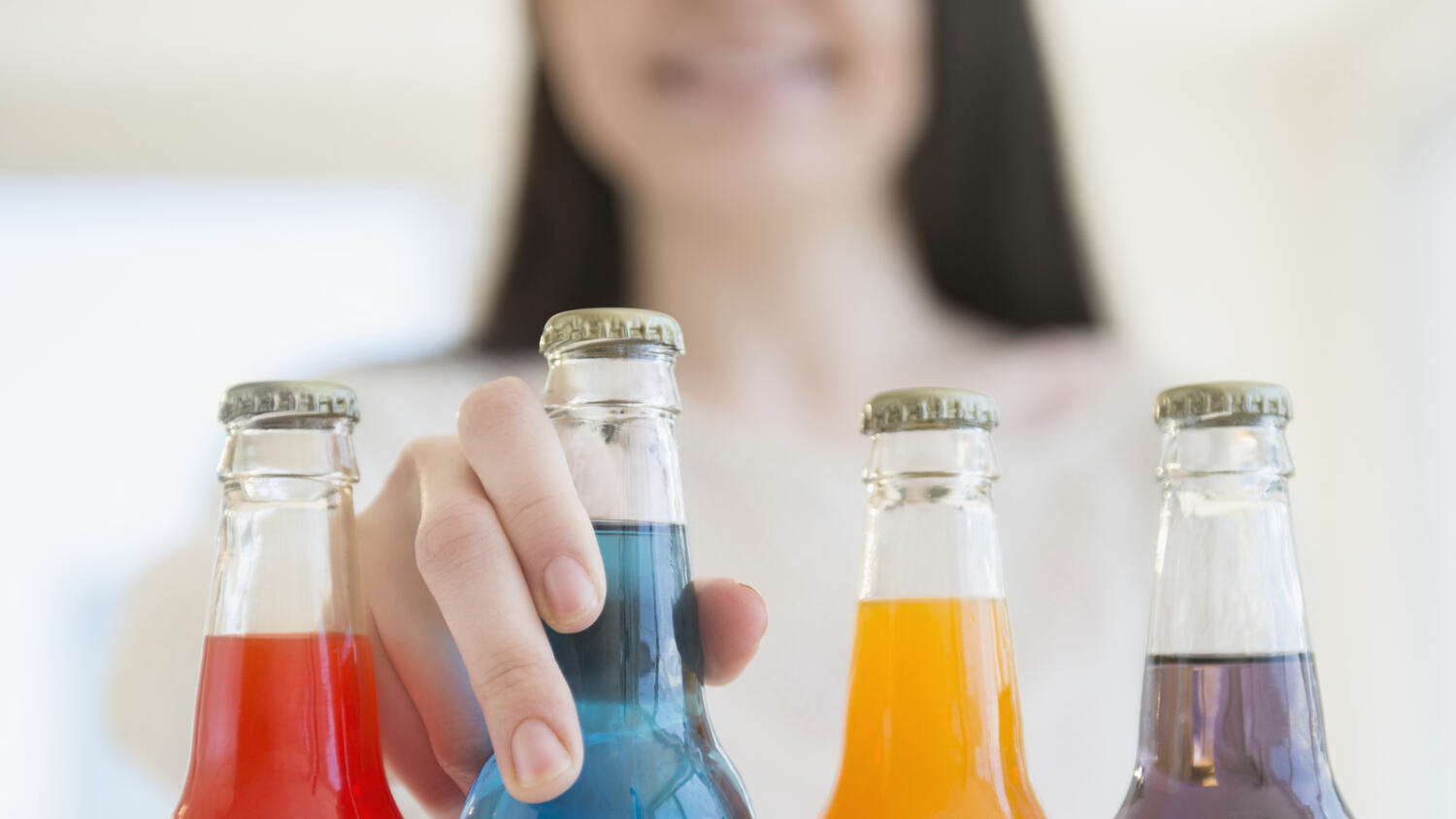
On average, a Vietnamese person consumes 1 liter of sugary drinks per week - Illustration photo: AFP
That was shared by Dr. Truong Tuyet Mai, National Institute of Nutrition, at a scientific meeting on the harmful effects of sugary drinks and policy recommendations for control organized by the National Institute of Nutrition on June 24.
Risk of many diseases due to excess sugar
According to Dr. Mai, in Vietnam, the rate of sugary drink consumption has increased rapidly over the past 10 years. It is estimated that on average, a Vietnamese person consumes 1 liter of sugary drinks per week. This is a very high number.
Meanwhile, the World Health Organization (WHO) recommends that the consumption of free sugars, or any sugar added to food or drinks, should be limited to less than 10% of total energy intake, ideally less than 5%. This is estimated to be around 25g per day for an average adult.
According to WHO, a 330ml portion of sugary drinks typically contains around 35g of sugar, providing around 140 kcal of energy and very little other nutritional value.
Sugar-sweetened beverages are defined as "all beverages containing free sugars including carbonated or non-carbonated soft drinks, liquid, concentrated and powdered fruit juices, flavoured waters, energy and sports drinks, canned teas, ready-to-drink coffees and sweetened milks".
"Consuming too many sugary drinks will lead to the risk of being overweight, obese, having type 2 diabetes, metabolic disorders, cardiovascular diseases, affecting kidney disease, increasing the risk of stroke, causing tooth decay, gout...
A systematic review and meta-analysis of 17 studies found that high sugar-sweetened beverage consumption increased the risk of type 2 diabetes by 1.51 times.
In particular, the study analyzed data from 3 cohort studies in the US with about 200,000 participants over about 20 years, showing that increasing consumption of sugary drinks >177ml/day for 4 years was associated with a 16% higher risk of diabetes in the next 4 years.
Meanwhile, replacing 355ml of sugary drinks daily with other drinks reduced the risk of diabetes by 2-10%.
In addition, sugary drinks may be associated with 9.3% of diagnosed cardiovascular disease. A study in the US of 106,000 teachers showed that consuming ≥355ml of sugary drinks/day is associated with cardiovascular disease, revascularization and stroke," Dr. Nguyet cited.
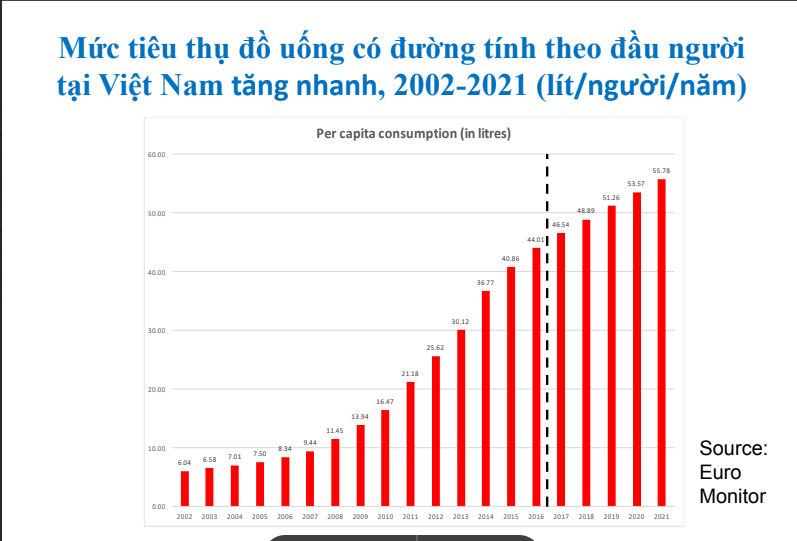
Vietnamese people's consumption of sugary drinks has increased over the years - Photo: WHO
Policy to reduce sugary drinks
Sharing about policies in controlling sugary drinks and recommendations, Dr. Hoang Thi My Hanh, Institute of Health Strategy and Policy (Ministry of Health), said that Vietnam currently does not have policies to reduce the consumption of sugary drinks.
Ms. Hanh suggested that it is necessary to focus on a group of policies to reduce the consumption of sugary drinks. Specifically, sugary drinks need to be subject to additional special consumption tax.
At the same time, it is necessary to communicate to raise people's awareness, educate mothers and students about nutrition. Control advertising and marketing to children (traditional and online channels). Reduce the availability of unhealthy products in schools, especially in big cities such as not selling at automatic drink stalls. Have nutrition labels on the front of the product.
Dr. Nguyen Tuan Lam, a WHO expert in Vietnam, said that according to WHO statistics, more than 110 countries have now imposed taxes on soft drinks. There is evidence that increasing taxes to increase prices by 20% will reduce soft drink consumption by about 20%. However, this is only if the tax increase is fully passed on to the price.
Mr. Lam cited that in Mexico, two years after applying a tax on sugary drinks, households with the least resources reduced their sugary drink purchases by 11.7%, compared to 7.6% in the general population.
Or in South Africa, a tax of around 12% has led to a reduction in product consumption of around 15%.
"Vietnam should consider imposing a tax on sugary drinks at 20% of the retail price as recommended by WHO to reduce health risks for future generations. At the same time, it should consider taxing by sugar content or threshold to encourage products with less sugar.
In addition, we should create a favorable environment to reduce the consumption of sugary drinks. Regulations on front labeling showing sugar content. Raising awareness about healthy beverage options...", Mr. Lam recommended.
Source: https://tuoitre.vn/me-do-uong-co-duong-nguoi-viet-nguy-co-mac-hang-loat-benh-tat-20240624174325599.htm





![[UPDATE] April 30th parade rehearsal on Le Duan street in front of Independence Palace](https://vstatic.vietnam.vn/vietnam/resource/IMAGE/2025/4/18/8f2604c6bc5648d4b918bd6867d08396)

![[Photo] Prime Minister Pham Minh Chinh receives Mr. Jefferey Perlman, CEO of Warburg Pincus Group (USA)](https://vstatic.vietnam.vn/vietnam/resource/IMAGE/2025/4/18/c37781eeb50342f09d8fe6841db2426c)







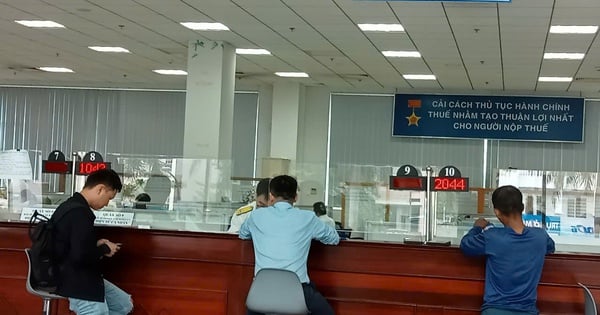



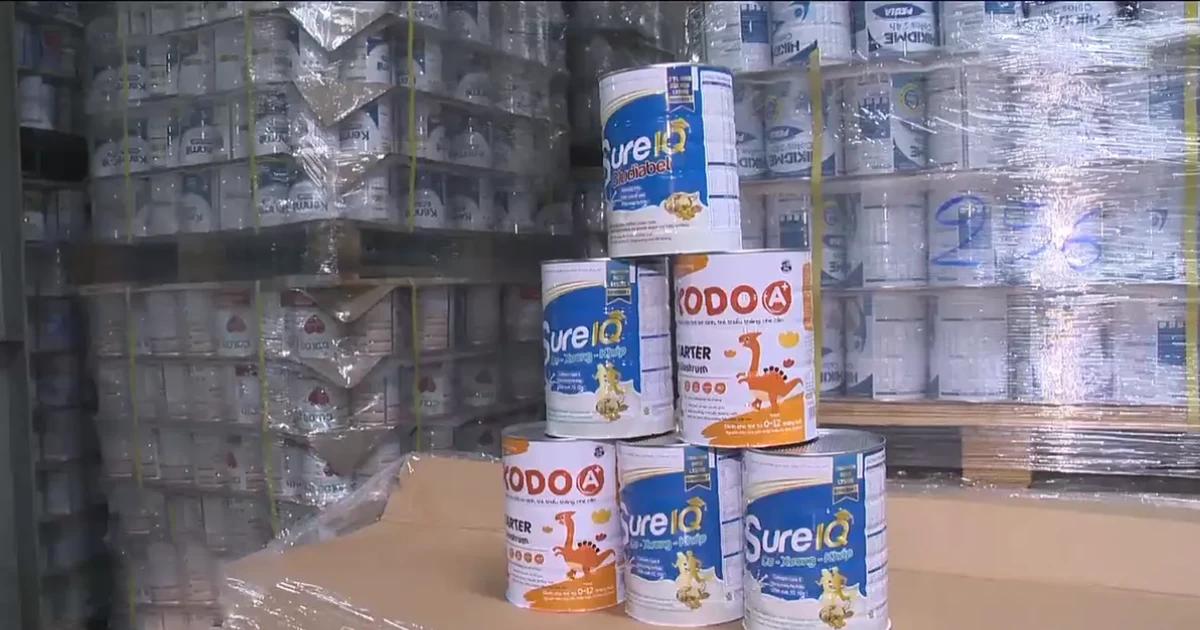


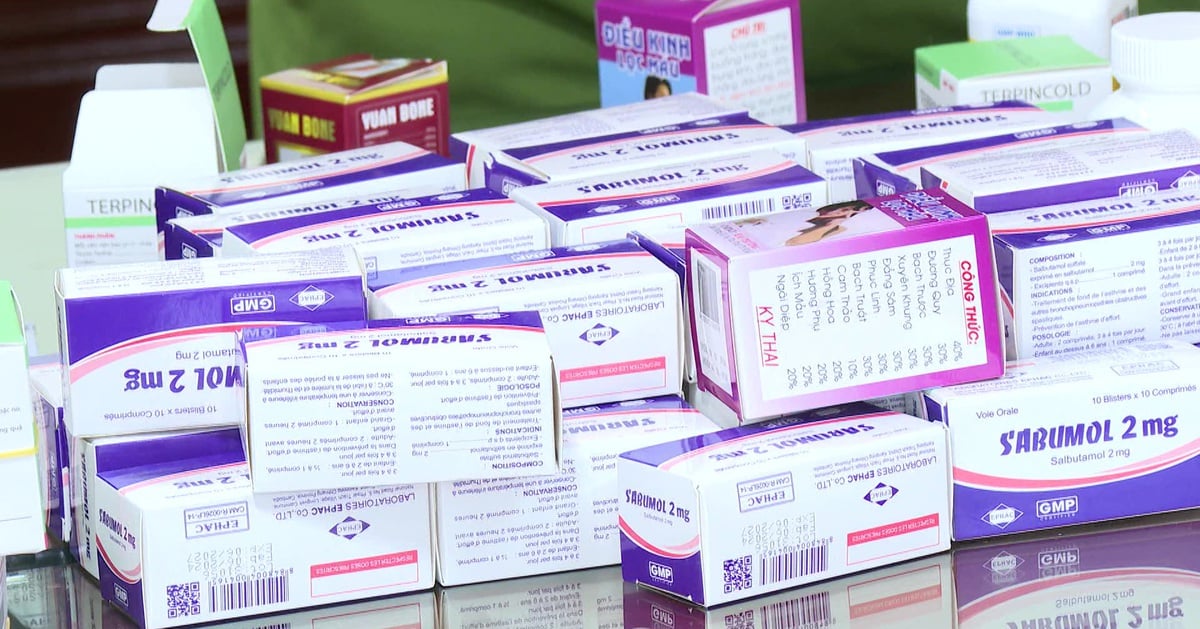







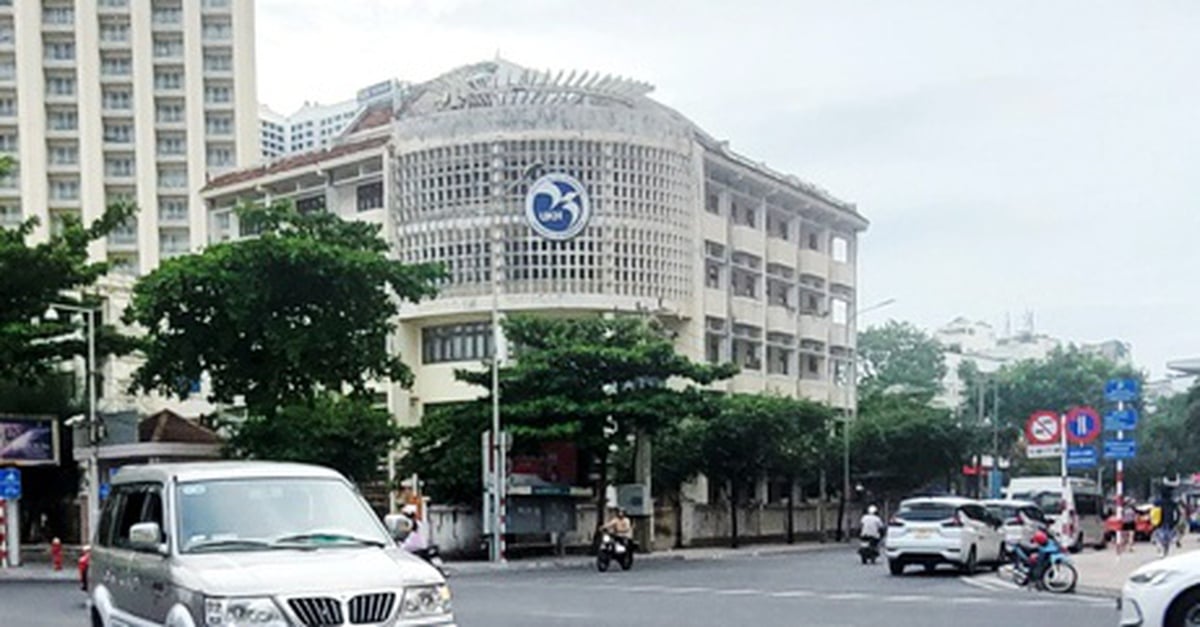














































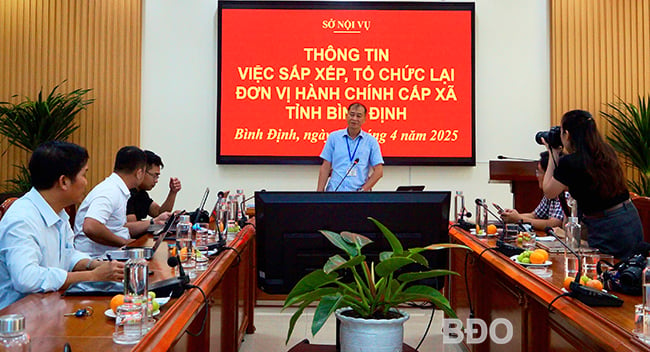

















Comment (0)